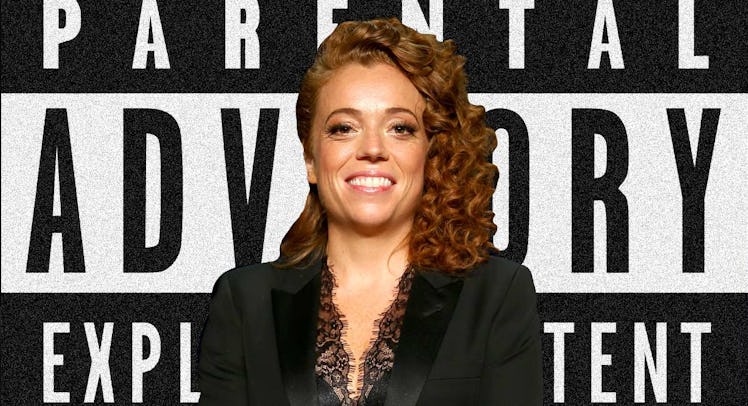No, Michelle Wolf’s Insults Don’t Set a Bad Example for Kids
People worry that insults in the political discourse are a bad example for kids, but they are a worse example for adults -- even the ones that know better.

Since Michelle Wolf’s roast of the current administration at the White House Correspondents Dinner, pundits have come unhinged over the ugly state of political discourse. Hands have wrang or been wrung or what have you. The word “bully” has been bandied about. Talking heads are shocked, SHOCKED, they insist, by Wolf’s profanity and willingness to attack another woman’s looks and personal integrity. Meanwhile, I’m still wondering why my 7-year-old son called my wife a “stupid girl” two days ago.
Who cares about the national political discourse? What the hell has happened to the discourse in my house? Where did my sweet angel child learn to talk like that?
There is a sizeable community that would suggest that my boy is a victim of the current political zeitgeist. Of course he’s hurling insults, this thinking goes, the president has called women pigs and is known to insult political opponents like Chuck Schumer with names like “sleepy eyes,” an anti-semitic deep cut. And the president’s opponents, feeling justified, have hurled insults back, coarsening the cultural conversation and exerting a terrible influence on children. This is a coherent argument, but it is also a very stupid argument. My kid didn’t learn to call girls stupid by reading Twitter, watching cable news networks, or subliminally tapping into the zeitgeist. He learned it by attending, albeit reluctantly, the first grade.
He understands, like every person who has ever been his age, that there is particular power in personal insults. If there wasn’t, we would not have that bullshit rhyme about sticks and stones. Words hurt. They hurt a lot, in fact. And that’s why kids love to call other kids stupid or comment on their looks or insult their parents (often hilarious, never appropriate). Insults work. But, again, kids know this. Kids knew this when Michelle Wolf was working out material on the playground.
So, how do we protect children from this horrible adult talk? We don’t. Or, more to the point, we stop pretending that they are going to be shocked by it and stop trying to draw purposeless parallels between adult behavior and schoolyard drama. Michelle Wolf wasn’t just insulting Sarah Huckabee Sanders for the hell of it. She was being paid to do it. Did she enjoy going in on someone she sees as a threat to her community? Probably, but this wasn’t some extracurricular harassment. It was a gig. Saying that Wolf shouldn’t have said those things is just gonna confuse children about what a comedian does.
Saying the president or the liberal commentariat goes too far is at least a digestible lesson. And I think we’ve seen that kids can hear this and internalize it. I would argue that the modern high school kid is probably better behaved than today’s politicians. The kids are fine. The weird thing is watching parents talk about the Golden Rule then turn around and eviscerate each other on social media.
Which is to say that the political discourse isn’t bad for kids. It’s not good for kids, but it’s probably not affecting them much. It’s bad for adults. Why? Because once we are beyond the influence of our parents and teachers, we come under the influence of our heroes and celebrities. And at that point, it’s too easy to forget all the things we were taught about civility and problem-solving in school. We become tribal and, verbally speaking, go to war. After that, we’re just undermining ourselves in front of our children.
I would suspect that for most kids, the bitterness and hostility of political talk barely registers. The problem isn’t the influence in that direction, it’s the lack of influence in the other. But I’m not going to give my son a pass on the “stupid girl” comment because I saw Michelle Wolf toss some barbs at a prominent and powerful person. I’m pissed about that comment and my son knows it. He didn’t need to see me be precious or get offended. He didn’t need a lecture on the importance of civil discourse to civic debate. He needed to know I was angry. He needed to know I was disappointed.
And, believe me, he knows.
Has our national conversation soured? Sure, but taking offense or talking about this stuff as “schoolyard” or “bullying” or “childish” is insulting to the kids. The kids make mistakes and learn from them. The adults aren’t learning and they won’t because all the scolds’ heaping criticisms on the insults as “degrading” or “in poor taste” aren’t actually angry or disappointed. And when you’re neither of those things, the best bet is to shut up.
This article was originally published on